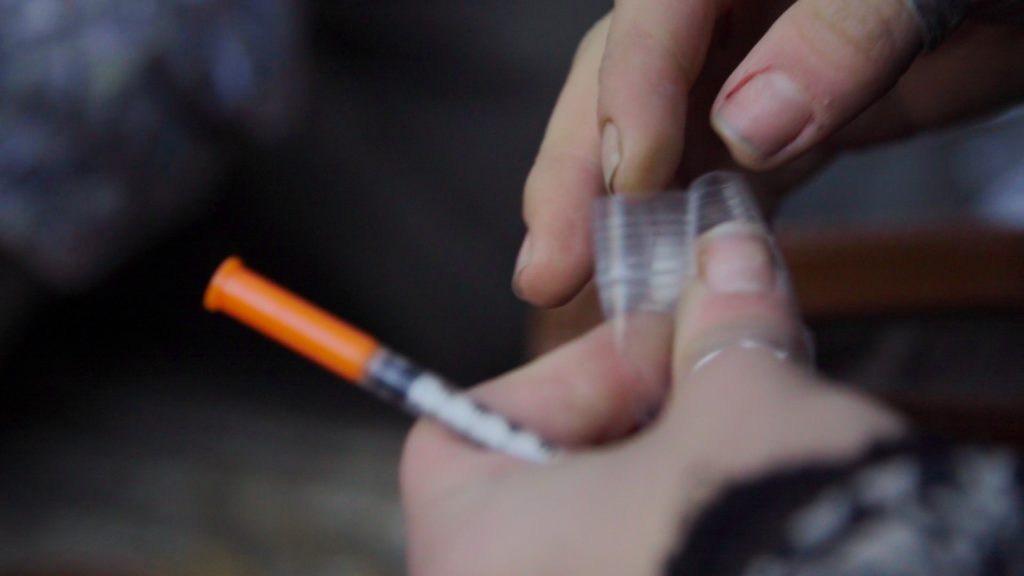What It Would Mean To Declare the Opioid Crisis a National Emergency

August 1, 2017
Share
The foremost recommendation from a commission established by President Donald Trump to address the opioid crisis spiraling across the United States was that he declare the epidemic a national emergency.
“With approximately 142 Americans dying every day, America is enduring a death toll equal to September 11th every three weeks,” read the interim report released by the Commission on Combating Drug Addiction and the Opioid Crisis on Monday.
The bipartisan commission, which is led by New Jersey Gov. Chris Christie, said that the declaration of a national emergency would allow Trump to leverage the executive branch and federal agencies to combat an addiction epidemic that was linked to more than 33,000 overdose deaths in 2015, the last year for which data was available from the Centers for Disease Control and Prevention.
Read More: How Bad is the Opioid Epidemic
It would allow the administration to remove several barriers to treatment. For example, the commission recommended that the administration waive a federal rule that limits the number of Medicaid recipients who can receive residential addiction treatment. Under current law, Medicaid funds can’t be used to reimburse inpatient facilities that treat “mental diseases,” including addiction, if they have more than 16 beds. Stripping that barrier, the commission said, would “immediately open treatment to thousands of Americans in existing facilities in all 50 states.”
Declaring a national emergency could also help establish federal incentives to improve access to treatment with the help of medications like methadone, buprenorphine or Vivitrol, said Bertha Madras, a member of the commission. She noted it would enable the Trump administration to require education on the proper prescription of opioids for medical professionals through the Drug Enforcement Administration. As FRONTLINE reported in the film Chasing Heroin, the roots of the current crisis can be traced back to the overprescription of addictive opioid painkillers over the last two decades.
“I do think there’s opportunity that this declaration can summon the resolve and resources of individuals within the federal government to act and act very quickly,” said Madras, a professor of psychobiology at Harvard Medical School.
From Madras’s perspective, the most urgent matters at hand are saving people from overdose deaths, and figuring out treatment options. “Just handing out Narcan [an overdose reversal drug] saves people’s lives, but that’s not a public health policy. It’s like leaving a person with a heart attack in a shopping mall. You apply the paddles, you revive them, and you just let them lie there and walk away,” Madras said. “And you know that a person who’s had a heart attack is at very high risk of having one again.” Overdoses are the same, she noted.
“I do think the idea of declaring this a public health emergency is actually something the administration should seriously consider,” said Michael Botticelli, the former director of the Office of National Drug Control Policy under the Obama administration. “It’s one more tool in the toolbox for the federal government to look at calling attention to this significant health issue, and perhaps providing a level of either funding or initiatives that might [normally] take a much longer time to enact,” Botticelli said.
Botticelli, now the executive director of the Grayken Center for Addiction Medicine at Boston Medical Center, said that while he appreciated the recommendations in the report, it was silent on the role that the expansion of Medicaid under the Affordable Care Act played in providing access to treatment, and therefore the importance of preserving the ACA. “People need access to comprehensive medical care and without that other initiatives are going to be largely meaningless,” he said.
Madras said she knows with a “high level of certainty” that Trump is very committed to solving the opioid epidemic, however, the committee’s report didn’t address the impact that repealing the ACA would have on such efforts. As for the question of whether Trump will declare a national emergency, she said, “I would assume that there’s an ongoing dialogue currently in the White House on what to do, what powers he has, and under what laws he can declare this emergency.”
A final version of the report is expected to be sent to the president later this year. In the meantime, five states — Arizona, Florida, Maryland, Massachusetts and Virginia — have already declared states of emergency in response to the opioid crisis, while Alaska has issued a disaster declaration.

Related Documentaries
Latest Documentaries
Related Stories
Related Stories
Explore
Policies
Teacher Center
Funding for FRONTLINE is provided through the support of PBS viewers and by the Corporation for Public Broadcasting, with major support from Ford Foundation. Additional funding is provided the Abrams Foundation, Park Foundation, John D. and Catherine T. MacArthur Foundation, Heising-Simons Foundation, and the FRONTLINE Trust, with major support from Jon and Jo Ann Hagler on behalf of the Jon L. Hagler Foundation, and additional support from Koo and Patricia Yuen. FRONTLINE is a registered trademark of WGBH Educational Foundation. Web Site Copyright ©1995-2025 WGBH Educational Foundation. PBS is a 501(c)(3) not-for-profit organization.





















